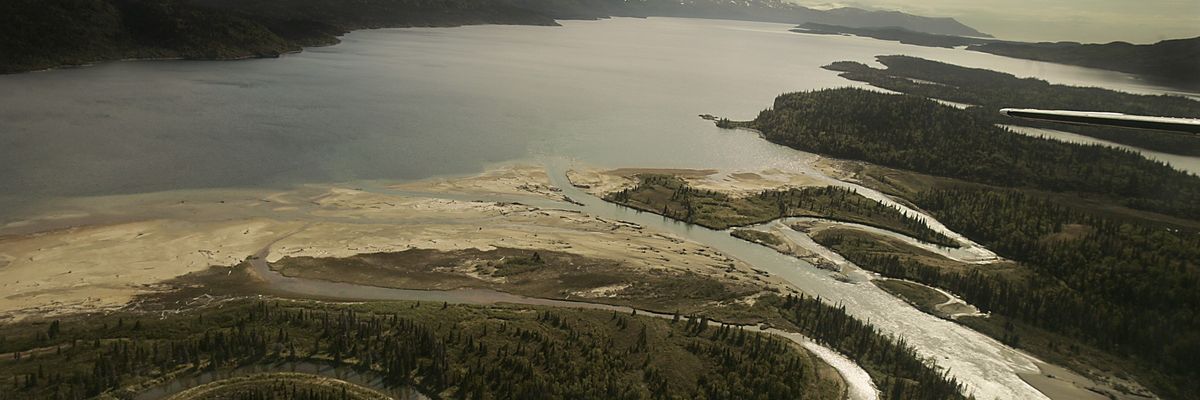The state of Alaska on Wednesday bypassed the lower courts and directly asked the U.S. Supreme Court to undo the Environmental Protection Agency's decision earlier this year to prohibit the construction of Pebble Mine, a proposed copper and gold project that conservationists say would be disastrous for Bristol Bay waters, wildlife, and communities.
Alaska Attorney General Treg Taylor's 91-page
filing, which argues that the EPA's rare use of its veto authority under the Clean Water Act was unlawful, drew immediate outrage from environmentalists, who accused the state of prioritizing the interests of profit-seeking mine developers.
"As the climate catastrophe wreaks havoc around the world, it's disheartening to see the governor turn his back on the irreplaceable ecosystem of Alaska's Bristol Bay," said Marc Fink, a senior attorney at the Center for Biological Diversity. "A remarkable array of wildlife depends on this watershed, from salmon and grizzly bears to the rare Iliamna Lake seals. Mining has no place here."
The Bristol Bay Defense Fund—a coalition of tribes, commercial and sport fishers, and conservation groups—argued that Alaska's lawsuit is "legally and factually unjustified" and "little more than a publicity stunt filed on behalf of an unscrupulous mining company, Pebble Limited Partnership, that has repeatedly misrepresented its record and misled regulators, its investors, Congress, and the general public."
"The EPA's authority to protect Bristol Bay under the Clean Water Act stands on an extensive and robust scientific and technical record that spans two decades and three presidential administrations," the coalition added. "Alaskans and people across the country overwhelmingly support EPA's action to protect Bristol Bay, and do not support the Pebble Mine. We will continue to defend Bristol Bay against the threat of the Pebble Mine and the state's legal antics as long as necessary to ensure that the region, tribes, salmon, and clean water resources are protected forever."
"The governor and his administration are working against the wishes of most Alaskans, especially Bristol Bay residents."
First proposed in 2001 by Vancouver-based Northern Dynasty Minerals, the project would include an open-pit mine at a
depth of roughly 1,500 feet as well as a lengthy gas pipeline and other infrastructure.
After years of review, the EPA issued a
final determination in late January restricting mining in a 309-square-mile area of state land surrounding the Pebble deposit, effectively killing the proposed mine.
The agency warned that, if completed, the project would have resulted in "large-scale loss of, and damage to, headwater streams, wetlands, and other aquatic resources that support salmon populations."
"Discharges of dredged or fill material to construct and operate the proposed mine site alone would result in the permanent loss of approximately 8.5 miles (13.7 km) of anadromous fish streams, 91 miles (147 km) of additional streams that support anadromous fish streams, and approximately 2,108 acres (8.5 km2) of wetlands and other waters," the EPA said.
In response to the EPA's decision, which environmentalists
celebrated as a hard-fought victory, the state of Alaska is petitioning the Supreme Court with the help of Virginia-based private law firm Consovoy McCarthy, which represented the group behind a recently decided affirmative action case.
The firm also represented a
pair of individual plaintiffs who sued the Biden administration over its student debt cancellation plan.
Alaska's case could find a receptive audience in the conservative-dominated U.S. Supreme Court, which weakened the Clean Water Act in a May ruling.
Carole Holley, managing attorney at Earthjustice's Alaska regional office, said Alaska's decision to take its case directly to the Supreme Court is "a highly unusual legal move, and also a highly unpopular one."
"The governor and his administration are working against the wishes of most Alaskans, especially Bristol Bay residents, by continuing to side with the mine developer," said Holley.



